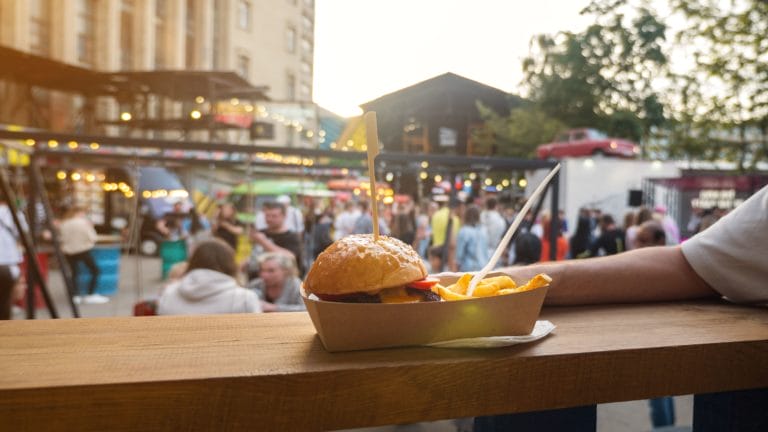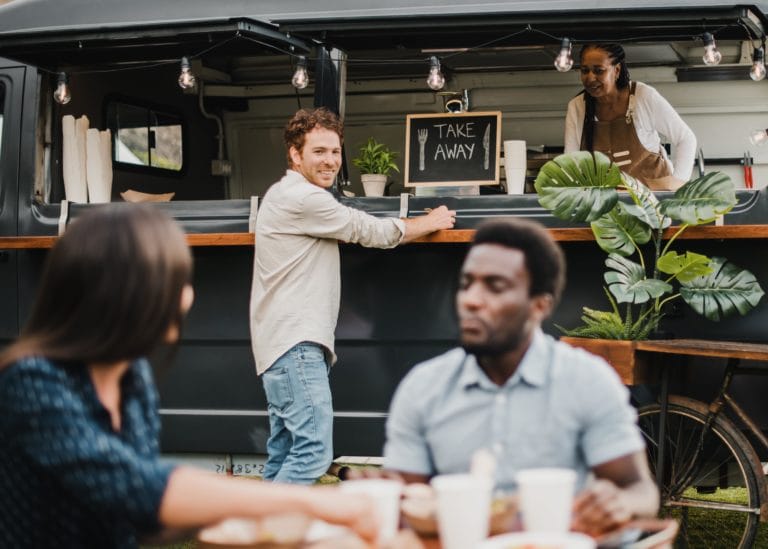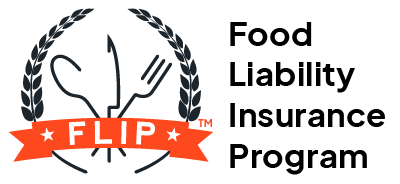Last Updated: July 8, 2024
Hosting a food truck event is no easy task, but the payoff can be huge.
When you get to see crowds of people chowing down on food from local businesses while also watching those businesses gain enthusiastic new customers, all your hard work will be well worth it.
To help you make these dreams a reality, we’ve put together a 6-step guide for how to host a food truck event that’ll set you up for success and have attendees asking “Same time next year?”
1. Choose a Prime Location
In real estate, it’s all about location, location, location; the same is true for hosting a food truck event!
When scouting out the best spot, here’s what to look for:
- Access to highways and main roads
- Local attendance potential
- Adequate space for invited vendors
- Parking
- Restrooms or space for portables
2. Obtain Festival Permits
Make sure you have all the necessary permits in place and research local requirements:
- A special event permit
- A health permit
- A fire permit
Your vendors will also need permits to legally sell food at your festival, including a business license, mobile food business liability insurance, and a food handler’s permit.

3. Prioritize Safety
Making your event safe for attendees and vendors is extremely important. The last thing you want is for someone to get injured because of something avoidable.
Here are a few tips for mitigating risk at your food truck festival:
- Account for walking areas, places for lines, and eating areas.
- Plan so that foot traffic and vehicle traffic rarely cross paths.
- Place food trucks around the perimeter.
- Require vendors to use extension cords with grounding plugs and to tape down electrical cords and brightly mark ropes or stakes, etc.
- If your event is held at night, all pathways and parking lots should be well-lit.
4. Promote Your Food Truck Festival
Once you’ve gotten all the logistical work figured out, it’s time for the fun part: marketing your festival!
You can market your event with these tools:
- Create a website
- Use social media
- Publish a press release
- Reach out to local media
- Advertise online and in local publications
- Encourage your vendors to promote the event
5. Choose Vendors for Your Food Truck Festival
Create an application for vendors to fill out in order to sell at your festival. Make it easy to download and submit.
When choosing which vendors you want to accept, aim for a balance of up-and-coming food trucks, fan favorites, and variety.

6. Get Insurance and Require Vendors to Be Insured
It’s not enough to simply have your own insurance for your event. Food truck vendors face certain risks that can lead to expensive insurance claims.
You should require your vendors to be insured as well to protect yourself and your finances from any mistakes they make. Ask for proof of insurance from your vendors on the application so you only get applicants who are already insured.
To set yourself up for success, you can partner with Food Liability Insurance Program (FLIP) to make sure your vendors have food truck insurance.
Partnering with FLIP comes with many benefits, including:
- Making it super easy for your vendors to purchase affordable insurance
- The ability to manage all of your events from the convenience of a user dashboard
- Protecting your business by becoming an automatic additional insured on your vendors’ policies
Learn more about how you can partner with FLIP to safeguard your event and your vendors at your food truck festival today!

By Alex Hastings
Alex is a Marketing Copywriter at Food Liability Insurance Program (FLIP). In her free time, she enjoys reading, birding, traveling, and finding any excuse to get brunch.

